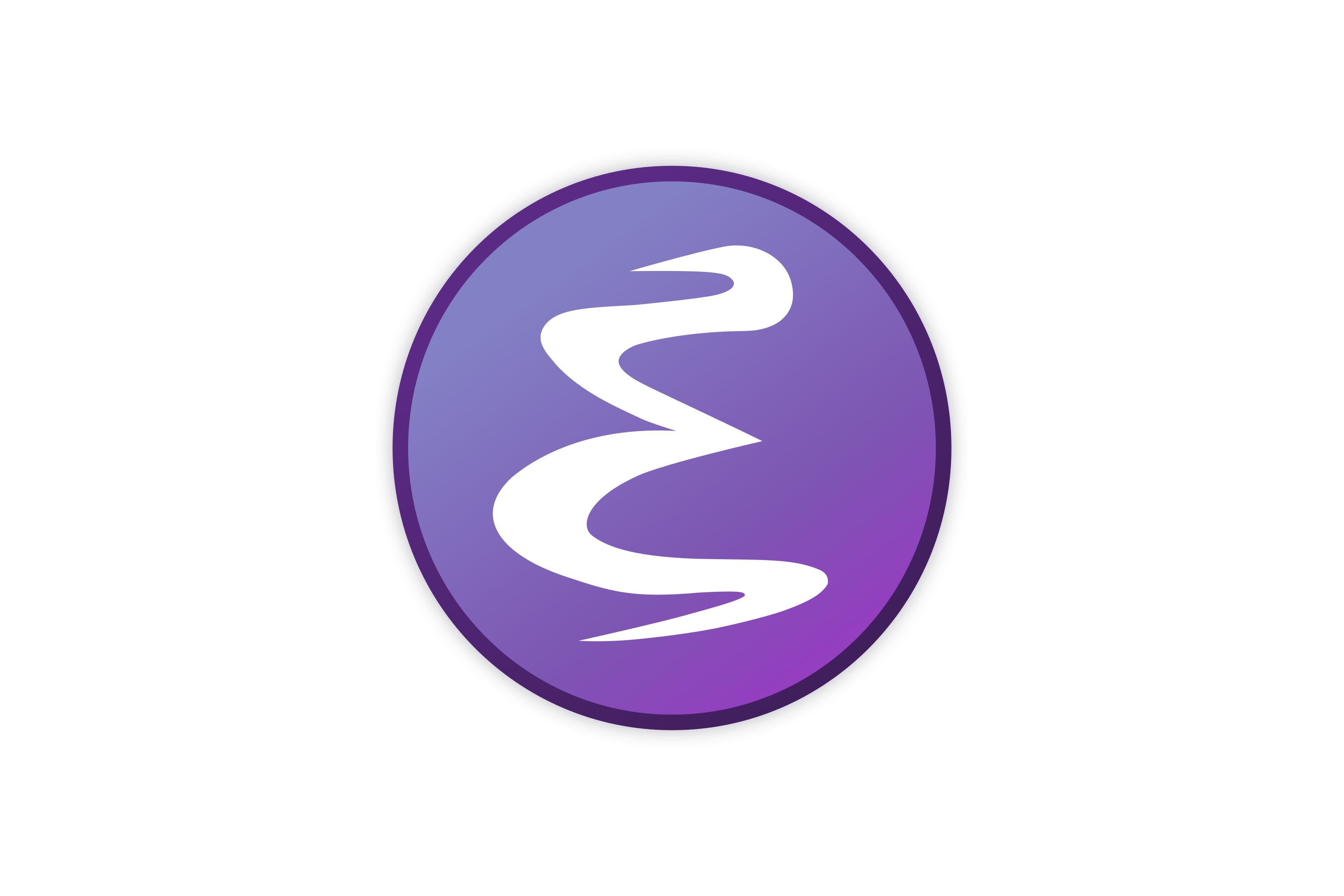Ever had a question about Linux but felt too afraid to ask? Well now’s your chance, ask any question about Linux, no matter how noob or repeated it is, and I and others will help answer them.
Previous noob question thread: https://lemmy.ml/post/14261893
No question here, just wanted to highlight that I use arch btw
I use gentoo btw
Yes, good
But what init system?
;)
Gentoo is great
OpenRC btw 😁
Chef’s kiss
I use Slackware btw
* spontaneously combusting * NOOOO
You should try NixOS, it’s pretty cool.
Don’t listen to this guy, use GNU Guix.
Real talk, I want to try Guix but I have not successfully installed it on any hardware, including VMs. This includes with nonguix for proprietary drivers and stuff. I can never get past install, it always just craps out on some substitution thing. Am I just stupid?
Real Linux users only use Hannah Montana linux. 😎
That’s old and unmaintained.
You should switch to RebeccaBlackOSMaybe. I’m busy right now.
I might do it later. Maybe I’ll do it on
🎵 FRIDAY FRIDAY GOTTA GET DOWN ON FRIDAY 🎵
Alright, absolute noob here, I’m not particularly interested in computer science or an OS I have to obsessively research. First, how is gaming on Linux nowadays? I play a lot of games, most of which are not triple-A, so I wonder how accessible this is. Second, what distributions are accessible and still customizable? I have all kinds of peripherals I’d like to be able to use, speaker systems, midi controllers, etc.
Fellow Linux noob, just started using it earlier this year so if someone with more experience wants to weigh in, please do.
That said, gaming on Linux is pretty good. Steam’s proton makes most games playable out of the box, although it’s still a good idea to check Proton DB to see if any particular game you want to play is playable.
As for your other question, I’m not totally sure what you mean by accessible and customizable, but I don’t think any of your peripherals are going to be distro locked. The Arch Wiki is a pretty good resource for, well, everything, but most relevant to you for your peripherals (it also usually gives good information for any distro, not just arch)
Q1: Pretty good! Use ProtonDB to check what games work, and if you need to apply any fixes.
Q2: Linux Mint is the most popular choice for beginners, and it’s extremely easy to use. Other people choose Pop!_OS because it’s apparently better for gaming (I haven’t tried it). However, I think the best distro for gaming, while still being extremely stable, is Nobara (a distro based on Fedora Linux).
Also, practically all Linux distros are customizable, don’t worry about which one’s the best.
P.S: You can browse through the most popular distros here: DistroWatch
(Background: I’ve been obsessively using Linux for four years.)
-
For Linux enthusiasts, how do you decide which distro you would like to try out next among the plethora of options that are available? The difference I perceive between majority of distros gets smaller the more I try to understand about them.
-
What are the minimum issues I am likely to face using the most beginner friendly distro like Mint for programming and light gaming?
-
How customizable is the GUI in Linux Mint specifically? What if I want a start menu like Windows 10 with the app list and the blocky app tiles? What about those custom widgets I see in hardcore Linux users’ desktops?
-
I heard there is no concept of file extensions in Linux. How am I supposed to work on my projects that I imported from my Windows machine that do contain extensions?
Bonus: Who creates those distro icons in color coded ASCII in the system info command in the terminal?
For the #4, the file extension can be seen just as a note, a little tag that’ll help you (or anyone else that will receive your file) remember which program you should use to successfully open the file.
From the viewpoint of your computer, in fact, a file is just a sequence of bits and every program can open every file, only it will not be able to find what it expects and actually do something useful with it, just as you can open a book written in any possible language: in most cases you will unable to undestand it, in some others you will be able to read it without any problem.
The “concept” of extensions was than introduced to allow your file manager (Explorer for Windows, Finder for macOS, Dolphin for KDE or Nautilus for GNOME) to know which program to launch when you double click on a certain file through a simple association table (that you can edit in your system preferences).
In regards to Linux you can sometimes read that file extensions are not a thing, but this is just because in the commandline you launch a specific program that you personally point to a certain file, so there is no file manager that needs to guess which app should be launched to open the document you just double clicked on.
That said, I think that should be pretty clear that in a Desktop context (like in a Personal Computer) that double click on a file situation pretty much applies to Linux too, so extensions will be useful and respected by the file manager you’ll find installed in your distro of choice, even if it can use other means when that is missing.
I’m afraid this answer isn’t 100% correct. There are ways to find out a file’s type beyond looking at an extension. For example, there are lots of file formats where all of the files start with a specific sequence of bites, known as a file signature (or as “magic bytes” or “magic numbers”).
You can try the
filecommand line tool to check that you can find out a file’s format without resorting to its extension, and you can read the tool’s manpage to learn how it works.Yes, I know about them and always prove extremely useful every time I receive a file with a wrong/no extension and have little clue about its content. But since the question was about how OP could work with “files with extensions” produced in Windows, I wanted to help clarify what are they, why they are used and that files do not need to be converted or whatever to be opened in Linux as it can “work with them” just fine.
-
I don’t distrohop. Instead I just use what works for me and what I find comfortable.
-
You will eventually need to use the terminal. And it will be overwhelming at first. But eventually the learning curve flattens a little when you get more comfortable not breaking your system ;þ
-
Can’t comment
-
File extensions are, in essence, nothing but a convention. You don’t even need them in Windows, really (You can open a file with any program, for example, you will just not get anything useful from it). So it’s far from a big deal.
-
-
With the recent Microsoft garbage, I’m giving Linux another try. I’ve been running a laptop for a while, no issues. My main rig, however can’t read all of my um…?hard drives
A live USB of Mint 21 reads 2 of 5 drives fine. The rest are recognized from GParted, but can’t access them. It looks like NTFS-3G is installed.
I’ve duck duck go’d (which apparently is just Bing) for a solution, but haven’t succeeded. Long term, I can probably pick up another drive, copy, and reformat everything to something Linux friendly. For now, I just want access.
I’m lazy and burned out. I don’t want to use the terminal- which I did try. I just want to make a few clicks and have access to all of my files.
If it matters, the drives (roughly) show up as: 500 gb, 4 TB NTFS (readable) 3, 12, 16 TB unknown (not readable)
Windows says they’re all NTFS.
Is there an easy way to easily mount my drives?
If you can boot back into windows, turn off quick startup/shutdown, run chkdsk or whatever on the drives, reboot back into windows then boot back into Linux and you’ll be okay.
Quick startup is a kind of weird sleep/hibernate mutant that leaves drives in an unclean state when it turns off, so the Linux drivers for ntfs say “I’m not gonna touch that possibly damaged drive”.
Finally bit the bullet and got a Thinkpad and I’m leaning towards putting Fedora on it. I’ve never used Linux before but I’ve done some research and I like the idea of something that updates more often than Debian but isn’t as DIY as Arch. Do y’all think Fedora would make a good starting point? I hear it’s stable enough and offers enough non-free applications through the RPM file management system.
Also, are there any drawbacks in using the immutable Silverblue version? I’m considering it just so I don’t do anything dumb by accident.
Never be afraid to try different distros you can always wipe and try again. You won’t break your computer. I’m a big fan of immutable distros but I’ve never tried fedora blue. Either will make a rock solid system
Thank you! :]
What is something Linux related that you’ve learned recently?
As a meta question, could this work as an additional (or alternate) recurring discussion question? It felt similar in intent, to encourage people to keep learning / asking questions and chances are that if someone learned something then others will benefit from the information (or correct them)
After 26 years of using Linux, I did my first baremetal “immutable” distro install last week.
My youngest son is starting school and instead of the Chromebooks that they recommend, I took a chance and installed Fedora Silverblue on a $200 Lenovo “student-rugged” class laptop. Everything works and he hasn’t had any issues so far. He gets access to the same student platform as the other students through Chrome, but then I can install Minetest and Tux Paint and GCompris as well.
The older kids run Debian stable for years now, but if this works out, I might transition them over next semester.
Could you point me to a good place to start learning how to troubleshoot? I added Unbuntu as a dual-boot to my gaming rig a while back, and when it works, it’s great. But as soon as I hit an error, I drop back to Windows because I know how to fix shit there.
The first thing I’ll say is the reason you’re more comfortable with Windows is because you’ve been using it for however long and learning to deal with the issues it has. The same needs to be done on Linux. You’ll have to learn how it works just like you forgot you did for Windows.
Second, along with logs like other users said, you have to know how to use a search engine well. Most issues will be easy to solve, but some may take some searching. The Arch wiki is a good resource even if you aren’t using Arch.
Just come ask here when you have trouble, and we’ll try to help.
When troubleshooting, the biggest thing is searching the web honestly. But some more things to help you out: look for logs. Linux has loads of logs and sometimes can tell you how to fix the problem.
Logs may not be immediately apparent. Some programs have their own log files that you can look into. Sometimes, if you run the program from the terminal, it’ll print out logs there. Otherwise, you read look through journalctl, although this has logs for everything so might be harder to search.
Another useful tip, particularly for system tools and terminal tools, is manual pages. Just run
man lsand replace ls with any command, you’ll get the documentation on how to use that tool.Ubuntu Wiki Ask Ubuntu Ubuntu Forums
The wiki has some information and should correspond to how Ubuntu specifically is configured. You can ask for ubuntu specific help in those communities. You can also ask here and on several Linux communities on Lemmy.
The Arch Wiki I find to be more in depth than the ubuntu wiki. Of course some things may differ from Ubuntu’s defaults but I found it a useful resource when using Ubuntu.
Finally I suggest you learn a bit about how Linux works in general, what is in what directory, what is wayland and xorg, understand how drives are named etc and some understanding of the terminal (moving around in directories, how to use sudo etc, no need to learn to make bash scripts).
Is plasma big screen really an option? Id like to install it on a desktop to act as a android tv. Launch Stremio, YT and maybe one or two other apps/websites. Easy big tile navigation with remote (flirc).
It’s in dev since 2020. The images hosted on the site are bit for any of my hardware. It says theres a Debian package. Installed that though LMDE but it was horrible. Somone mentioned Kububtu can install it with apt, but its not listed. Think I’ll give up.
Good question! Someone let me know when there’s an answer.
I’m on Linux mint 22 and my audio outputs don’t change automatically. When I plug in USB headphones, audio won’t output to them unless I manually change it in settings.
Also, why can’t I interact with the panel applets (on the right side) while I’m in game? For example: I’m playing a game, I plug in my headphones, I have to manually change the audio output so I hit the “windows” key to bring up the panel, but I can’t interact with any of the applets on the right side of the panel (I can’t select the audio icon and change settings from there). I have to search audio settings in the panel then alt tab to it. It’s really cumbersome
Fun fact: The “Windows key” (or “Command key” for Mac users) has its own generic name: the Super key!
Not trying to be a smartass here; I genuinely find it fascinating! :D
Some distros call it the Meta key.
I didn’t know that. Thanks!
Which distros, out of curiosity?
Fedora KDE does. I think it’s going to go with the DE rather than the distro, I bet Kubuntu also does.
I think dating back to the Space Cadet keyboard, Unix systems recognize 6 modifier keys: Shift, Control, Alt, Super, Meta and Hyper. It is my understanding that they choose to bind either Super or Meta to the “Windows” key (or the octothorpe whatever that thing is called key on Macs) and in practice it’s used as another modifier key, often with Windows-like functionality such as opening the Menu if tapped tacked on.
That is so weird. Haha.
Can you try
"pactl load-module module-switch-on-connect"?It says “no valid command specified”
Did you enter the command line (especially
load-module) correctly?“Pactl load-module” outputs “you have to specify a module name and arguments.”
I duck go’d that command and it seems like it’s for pulseaudio. The latest mint release uses pipewire for the audio server. Is the command different for that?
“Pactl load-module” outputs “you have to specify a module name and arguments.”
As I said in earlier comment, please run
"pactl load-module module-switch-on-connect"exactly. Note thatPactlandpactlare different commands and the former is invalid.Is the command different for that?
As the name suggests,
pactlis a command for PulseAudio. PipeWire supports application written for PulseAudio, includingpactl. Try"man pipewire-pulse"to get further info.That seems to have worked. Tbf, your original comment displayed as “pactl load-module module-switch-on-connect” Which indicates 2 seperate commands.
Is it wise to go for arch to try linux for the first time?
I’m using Arch, I love it. What’s absolutely bonkers is that the system belongs to you.
However, if you have never used Linux, it’s insane to try to install Arch. The online wiki is tailored for people with at least a decent amount of Linux knowledge.
As a noob, it will result in data loss, except if you’re already very familiar with terminals or are very fluent in IT.
You might want to try something more user friendly, as Zorin then come back to Arch when you want more power.
This is what I did. If you generally know what you’re doing around computers it just requires patience and a willingness to “Read the (Friendly) Manual.”
If you’re running intel, nVidia, dual GPU setup, and some other things, your installation will be more involved.
But the great part is that once you’ve set all that up, things just generally work and the Arch wiki is an amazing resource.
The arch wiki is difficult to use for beginners. Each page is single topic. It is not a guide. Using it daily, it takes at least a month to understand it well enough to “build your own guides”. If you want to do that kind of deep dive, jump on in. If not, you’ll have a better time using just about any distro other than arch.
BTW. If you do decide to take that route. Don’t become one of those miscreants who “uses arch btw” It’s a red flag for someone who doesn’t know wtf they are talking about.
Will it blend?
Depends on the hardware, but generally, yeah.
(It’s a joke)
I couldn’t get the Chuck Norris edition to blend, unfortunately.
I’m always too afraid to ask… Is this year finally the year of Desktop Linux? Is next year the year of Mobile Linux?
trolololo.jpg
I kid, this year has been the year of Desktop Linux for well over two decades for me. Obviously! And I think this megathread is great idea :)











